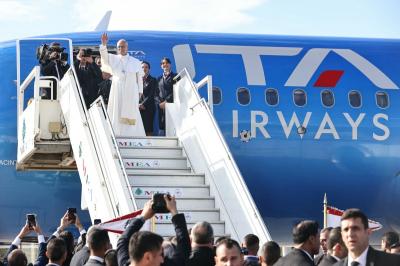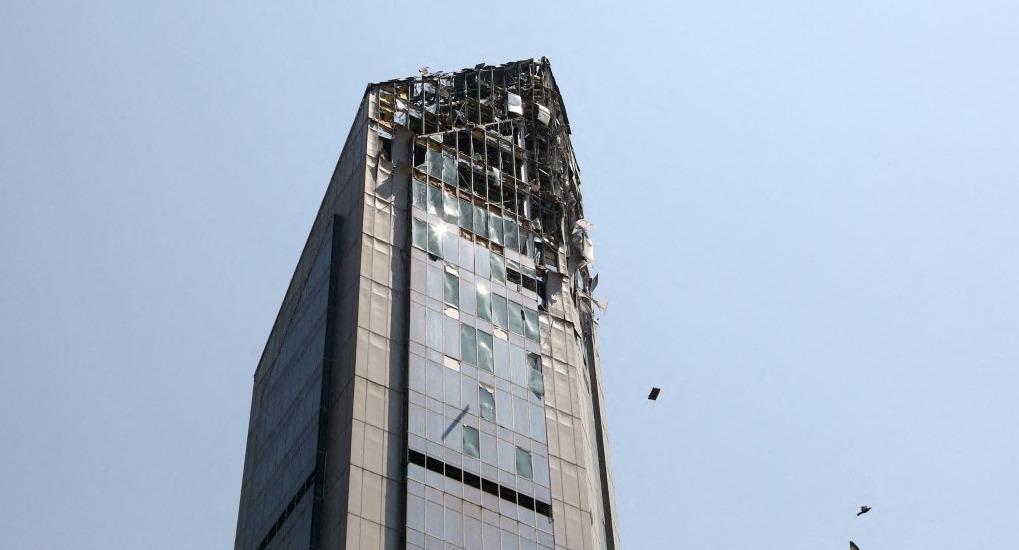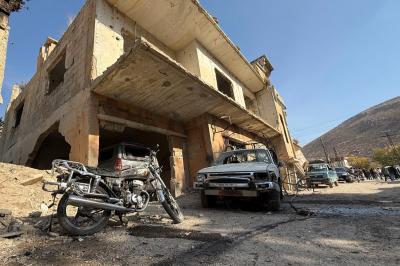Yesterday, Israel launched a massive military operation—Operation Rising Lion—targeting Iranian nuclear facilities, military command centers, and key leadership figures. This attack marks a dangerously severe escalation in the long-standing shadow war between the two countries and will have profound repercussions for regional stability, global security, and the geopolitical balance in the Middle East.
Israel presented several reasons to justify its strike, all tied to what it perceives as an existential nuclear threat from Iran.
Preventing Iran from Acquiring Nuclear Weapons
Israel has never ceased to describe Iran’s nuclear program as an existential threat, especially after recent intelligence assessments concluded that Iran was on the verge of acquiring the capability to produce a nuclear weapon within months, if not weeks. The International Atomic Energy Agency (IAEA) recently declared, for the first time in 20 years, that Iran had violated its commitments under the nuclear non-proliferation framework, citing its stockpile of 60% enriched uranium—enough to produce several bombs if further enriched. Israeli Prime Minister Benjamin Netanyahu described the strike as a preemptive measure, stating: "If not stopped, Iran could produce a nuclear weapon very soon—within a year, perhaps even a few months. This is a clear and present danger to Israel’s very survival."
Destroying Iran’s Military and Nuclear Leadership
The strikes were not limited to nuclear infrastructure but also targeted key figures, including Hossein Salami, Commander of the Islamic Revolutionary Guard Corps (IRGC); Mohammad Bagheri, Chief of Staff of the Iranian Armed Forces; and Gholam Ali Rashid, Commander of the Khatam al-Anbiya Central Headquarters. The attacks also struck nuclear physicists such as Fereydoon Abbasi, former head of the Iranian Atomic Energy Organization.
By targeting Iran’s military and scientific leadership, Israel sought to hinder nuclear progress and disrupt Tehran’s ability to respond effectively.
Exploiting Narrow Opportunity
Israel acted at a time when U.S.-Iranian negotiations were stalled and Iran appeared weakened. With Hezbollah diminished after the Israel-Lebanon war (2023-2025) and the failure of Iran’s missile attack on Israel in April 2024, Netanyahu likely saw this as the perfect moment to strike before Iran could further fortify its nuclear facilities.
AttackTiming
The IAEA’s decision two days earlier (June 12) condemning Iran provided diplomatic cover for Israel’s operation, reinforcing the narrative that Tehran was violating international norms.
Additionally, the U.S. State Department recently evacuated non-essential personnel from Iraq, signaling anticipation of regional conflict. Although Washington denied involvement, Israel may have calculated that the Trump administration would offer defensive support if Iran retaliated.
Moreover, Netanyahu faces growing international isolation over the Gaza war and domestic pressures, possibly driving him to reassert Israeli deterrence and regain popularity.
Immediate Consequences
Iran confirmed that its Natanz nuclear facility was struck, though the full extent of the damage remains unclear. Several IRGC bases and missile sites were also hit, while the assassinations of Salami, Bagheri, and Rashid—senior military and IRGC commanders—dealt a severe blow to Iran’s military chain of command.
Iranian state media reported civilian casualties, including a young girl, from strikes in Tehran.
Expected Iranian Response
Iran vowed to deliver a "severe punishment" to Israel. What are its options?
• Direct missile and drone strikes: Iran has already launched over 100 drones toward Israel, signaling the start of a retaliatory campaign. It could escalate with ballistic missiles, as in April 2024.
• Proxy warfare: Iran may mobilize its regional allies—Hezbollah (Lebanon), the Houthis (Yemen), and Iraqi militias—to attack Israeli and U.S. targets, though their capabilities have been weakened by previous Israeli strikes.
• Strait of Hormuz disruption: Iran could threaten global oil supplies by disrupting maritime traffic.
• Accelerated nuclear pursuit: Instead of de-escalation, Iran may rush to produce a nuclear weapon. Estimates suggest it is not far from achieving this capability.
Geopolitical Repercussions
The Israeli strike—and Iran’s response—risks sparking a regional war. Rapid escalation could drag in the U.S., Gulf states, and Russia (which backs Iran).
It may also complicate regional alliances, with some nations condemning the attack while others remain silent.
The conflict in a region critical to global fossil fuel supplies will inevitably impact oil and gas markets. Brent crude prices surged 9% after the strike, and further instability could trigger a global energy crisis.
Another potential fallout is strained U.S.-Israel relations. While Washington officially denied involvement, President Trump’s statement that he "expected something like this" hints at tacit approval. However, Trump, who had warned Israel against sabotaging nuclear talks, may not be pleased with the strike’s timing—especially if Iran attacks U.S. forces.
With nuclear talks now frozen, diplomatic solutions seem distant. The UN, EU, Russia, and China may push for de-escalation, but divisions will persist.
Iran cannot afford not to retaliate. Will its response push the region back toward soft power—diplomatic solutions—or will developments drag all parties into hard power, igniting conflicts and wars across the Middle East? The outcome could redefine the future of the Greater Middle East.
Please post your comments on:
comment@alsafanews.com
 Politics
Politics














